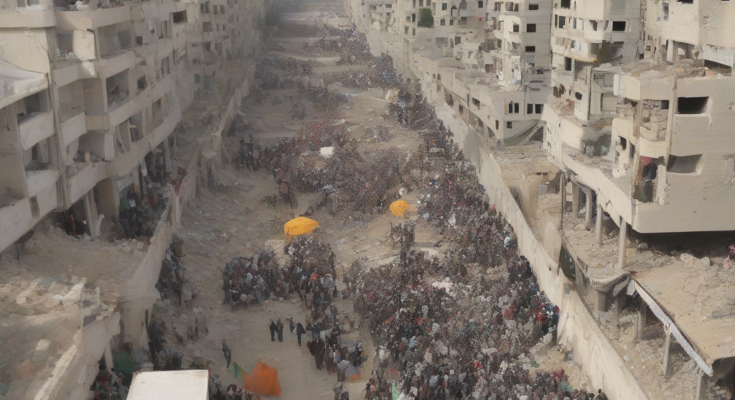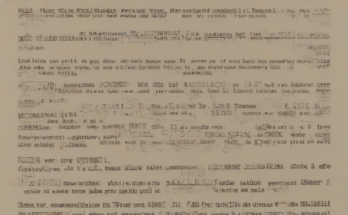Aiding Gaza: Navigating the Complexities of Humanitarian Aid and Finding Reputable Organizations
The humanitarian crisis in Gaza is a complex and deeply concerning issue. The ongoing conflict, blockade, and internal challenges have created immense suffering for the civilian population. Donating to aid Gaza requires careful consideration to ensure your contribution reaches those in need effectively and ethically. This guide aims to provide information on reputable organizations working in Gaza and factors to consider when choosing where to donate.
Understanding the Challenges of Donating to Gaza
Several factors complicate providing aid to Gaza:
- The Blockade: The Israeli blockade restricts the flow of goods and people into and out of Gaza, making logistics challenging and expensive. This can impact the efficiency of aid delivery.
- Political and Security Concerns: The ongoing conflict and political instability create a volatile environment, potentially impacting the safety of aid workers and the effectiveness of aid programs.
- Internal Conflicts and Governance: Internal divisions and governance challenges within Gaza can affect the distribution and allocation of aid resources.
- Transparency and Accountability: Ensuring transparency and accountability in aid delivery is crucial to guarantee that donations reach their intended beneficiaries. Unfortunately, some organizations may lack transparency or efficient management, leading to aid mismanagement.
- Access Restrictions: Access to certain areas within Gaza may be restricted due to security concerns, limiting the reach of aid organizations.
Choosing Reputable Organizations: Key Considerations
Before donating, carefully research organizations to ensure they meet the following criteria:
- Transparency: Look for organizations that openly share their financial statements, program reports, and impact assessments. Their websites should clearly outline how donations are used and provide evidence of their work.
- Accountability: Check for independent audits and assessments of their work. Organizations should be accountable to donors and beneficiaries, demonstrating responsible financial management and program implementation.
- Impact: Assess the organization’s track record and evidence of its impact on the ground. Look for measurable outcomes and tangible results that demonstrate their effectiveness in addressing the needs of the Gazan population.
- On-the-Ground Presence: Prefer organizations with a long-standing presence in Gaza, enabling them to navigate the complexities of the region effectively and maintain strong relationships with local communities.
- Local Partnerships: Organizations that collaborate with local partners often have a better understanding of the needs and contexts on the ground, ensuring aid is culturally sensitive and effectively targeted.
- Emergency Response Capacity: In crisis situations, the ability to respond swiftly and efficiently is crucial. Consider organizations with a proven track record of effective emergency response.
- Specific Program Focus: Identify your priorities (e.g., medical aid, food security, education, shelter) and choose organizations specializing in those areas. This ensures your donation has a targeted impact.
- Donation Methods: Ensure the organization offers secure and transparent donation methods. Be wary of organizations requesting donations through unofficial channels.
Types of Aid and Organizations Involved
Various organizations offer aid to Gaza, focusing on different aspects of humanitarian need:
- Medical Aid: Organizations like Doctors Without Borders (MSF) provide essential medical services, including trauma care, surgery, and healthcare for vulnerable populations. They often work in challenging environments and have a strong track record of delivering critical medical aid.
- Food Security: Organizations like the World Food Programme (WFP) provide food assistance, addressing malnutrition and food insecurity among vulnerable families. Their large-scale operations enable them to reach significant portions of the population.
- Water and Sanitation: Organizations work to improve access to clean water and sanitation, crucial for preventing the spread of disease and improving public health. UNICEF is one such organization actively working in this area.
- Shelter and Housing: Organizations provide emergency shelter and support for those who have lost their homes due to conflict or displacement. Often, these are local or regional organizations with strong community ties.
- Education: Organizations focus on supporting education, providing access to schooling and educational resources for children and young people. This can include providing school supplies, building schools, and offering educational programs.
- Economic Development: Some organizations work to support economic development initiatives, enabling local communities to build sustainable livelihoods and reduce their reliance on aid.
- Human Rights Organizations: Organizations like Human Rights Watch and Amnesty International work to monitor human rights violations and advocate for accountability. While not directly providing aid, their work is essential for creating a more just and stable environment in Gaza.
Researching Specific Organizations: Examples
It’s crucial to independently research any organization before donating. Here are some examples of organizations working in Gaza (this is not an exhaustive list, and it is vital to conduct your own due diligence):
- Doctors Without Borders (MSF): Known for its medical work in conflict zones and humanitarian crises worldwide. Check their website for specific projects in Gaza and their financial transparency reports.
- World Food Programme (WFP): A UN agency providing food assistance globally, including Gaza. Explore their website for information on their operations and impact in the region.
- UNICEF: The UN agency focused on children’s rights and well-being. They have extensive work in Gaza related to water, sanitation, education, and child protection.
- International Committee of the Red Cross (ICRC): Works to protect victims of conflict and armed violence. They provide essential assistance and support in Gaza. Check their website for details of their operations.
- Palestine Red Crescent Society (PRCS): The local Red Crescent society plays a vital role in providing first aid, medical care, and other essential services in Gaza.
- UNRWA (United Nations Relief and Works Agency for Palestine Refugees in the Near East): Provides essential services such as education, healthcare, and relief assistance to Palestinian refugees in Gaza.
Beyond Monetary Donations: Other Ways to Help
Besides financial contributions, you can support Gaza in other ways:
- Advocacy: Contact your elected officials to advocate for policies that promote peace, humanitarian aid, and human rights in Gaza.
- Raising Awareness: Share information about the humanitarian crisis in Gaza with your network and encourage others to support aid efforts.
- Volunteering: Some organizations offer volunteer opportunities, though this may require specific skills and experience.
- Supporting Fair Trade Initiatives: Support businesses that promote fair trade practices and economic opportunities for Palestinians.
Disclaimer:
This information is for guidance only. It is crucial to independently verify the legitimacy and effectiveness of any organization before donating. The situation in Gaza is constantly evolving, so stay informed about the latest developments and the needs of the affected population.
Remember to prioritize reputable organizations with transparent financial practices and a proven track record of delivering effective aid. Your contribution can make a difference in the lives of those affected by the humanitarian crisis in Gaza.



